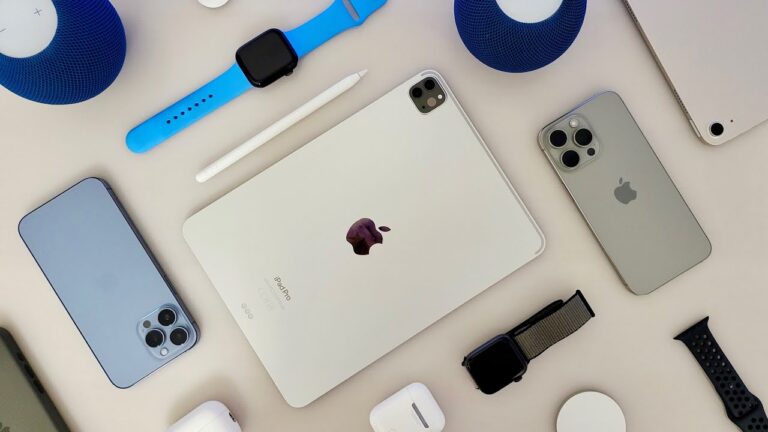Tablet PCs are the key to a turnaround in the PC market this year.
- IDC and Gartner have confirmed what everyone already knew: 2013 was one of the worst years on record for the PC market.
- By my calculation PCs declined by 8% in 2013 compared to 4% in 2012 marking one of the worst years in the last 20.
- Everyone knows what the problem is but nothing has been able to halt the migration of users away from PCs to smartphones and tablets.
- The PC industry has been fortunate that for the last 15 years a PC has been the only practical way to surf the internet and check email.
- Hence, users that only want these functions (content consumers) have purchased machines that were way over specified for the task in hand.
- When something cheaper and more convenient became available these users saw no reason to use a PC anymore and made the switch.
- I estimate that in 2010 there were 330m of these users globally making up 26% of all PC users worldwide.
- These users are now deserting the platform in droves and I do not expect them to come back.
- This, combined with the slowness in the economy over the last 2 years have been the main contributing factors towards weakness in the PC market.
- Windows 8 has been designed to appeal to these types of users but it has had no effect on the exodus and frankly I do not think that it will.
- Where Windows 8 becomes interesting is for content creators (75% of the user base) who also consume content in their spare time.
- These users use a tablet to consume content as it is more convenient and a laptop or a desktop to create content.
- A Windows 8 tablet with a detachable keyboard offers the potential for a compromise free hybrid but to date hardware issues have ensured that devices have remained suboptimal.
- The devices I am starting to see have the capability to operate as both a laptop and as a tablet with no real compromise being made when switching from one to the other.
- For me, this is the tipping point at which Window 8 starts to become interesting for content creator users who are looking to replace a tablet and a laptop with a single device.
- On top of this Windows 8 does actually offer a reasonable tablet experience despite its shortcomings when it comes to apps. (see here).
- Therefore I believe that 2014 will be a better year than the pessimists at Gartner and IDC predict.
- This is because:
- Windows 8 hybrid devices fulfil their promise for the first time.
- The pool of content consumers deserting the platform is getting smaller and hence its negative effect is diminishing.
- Windows Phone will move squarely into the number three slot in the mobile ecosystem, raising awareness of the Metro UI style.
- Microsoft’s ending of Windows XP support in 2014 will force corporates to move to Windows 7, most likely buying new machines in the process.
- Both Gartner and IDC expect the market to continue declining in 2014, albeit less than it did in 2013.
- I, on the other hand, think that these devices could lead the market to expand slightly in 2014.
- I include tablet PCs in my numbers but exclude iOS, Android tablets and chromebooks.
- On this basis I see the PC market expanding by 4% to 343m units from 325m units in 2013.
- This is a contrarian view and is not priced into the shares of either Microsoft or Intel.
- I like Microsoft anyway for its ecosystem story, but I am inclined to add Intel as it is so tightly associated with the PC market where I am expecting some surprises this year.









Blog Comments
Tim Nash
January 13, 2014 at 4:08 pm
A real issue for Microsoft is what content is being created at home.
Does the creator have a home PC because of what is used at the office? In which case they may move to Windows 7 in lockstep with work, if they are a power user of Office or an in house program. If full MS Office compatability isn’t necessary or work subsidised, maybe OpenOffice is good enough on the old PC. In these cases Windows 8 is unlikely to be used.
For other areas of content creation like video, photography, university papers, school reports etc. tablets are becoming more and more capable and there is no advantage in using Windows 8 over iOS or Android.
So if companies move in preference to Windows 7 and the vast majority of people use Android on smartphones or tablets or iPhones or iPads, how will enough people use Windows 8 enough to become converts?
windsorr
January 14, 2014 at 12:07 pm
The way I look at it is this. If content creation is required a higher functioning device is needed. Here Windows has 90% share vs Mac on 10%. Apples for apples (ho Ho) compared devices from Apple are more expensive. Chances are these users buy a Windows machine. Disagree completely on photography and video. Very high specs are required and Android has no chance of competing here.
Its a very good question. MOst companies will move to Winodws 7 as 8 offers them nothing. Here Windows Phone might help but MSFT has to get off its backside and do something to educate the user. The lack of CEO is proving a hinderence.
Tim Nash
January 14, 2014 at 2:44 pm
“Disagree completely on photography and video.”
For most home users iMovie or iPhoto or an equivalent is enough. That is if they don’t just post clips or photos direct from smartphone to the web. So only those who feel the need for more powerful software like Final Cut Pro or Premiere Pro or Lightroom will have to use PCs or Macs.
Tatilsever
January 14, 2014 at 12:27 am
>”The devices I am starting to see have the capability to operate as both a laptop and as a tablet with no real compromise being made when switching from one to the other.”
If Windows 8 has taught the tech world anything, it is that there is no such thing as “no compromise”. 10” screen is frustratingly small for a laptop if you are using Office or Outlook with tiny buttons on the ribbon that takes up a good chunk of the screen real estate. On the other hand, if you are in tablet mode, even 10” can be too large to hold when you are reading a book over a few hours. iPad4 was too thick, too large and too heavy by just enough for many to pick the Mini despite its non-retina screen. What are the chances of getting a tablet as small and lightweight as iPad Air, Mini or Nexus 7, when the user needs to carry around the battery and the USB, HDMI, ethernet etc. ports of a real Intel laptop?
If the keyboard is folded away, thickness will always be there. If you unhook the keyboard, it will always be in some other room just when you need it. That is if a mechanical failure does not make it inoperable in the first place. It is all about compromises. And these are before all the compromises Win8 made to its interface to make it touch compatible, but not quite touch optimized.
These are laptops with a tablet mode just in case. It may be a good compromise for some customers, but it is still a compromise between having a really good laptop and a really good tablet.
Intel Q4 – A later tide. | Radio Free Mobile
January 17, 2014 at 10:18 am
[…] However, I think the time is right for the PC market recover as the hardware of hybrid devices is reaching the point where compromises no longer have to be made (see here). […]